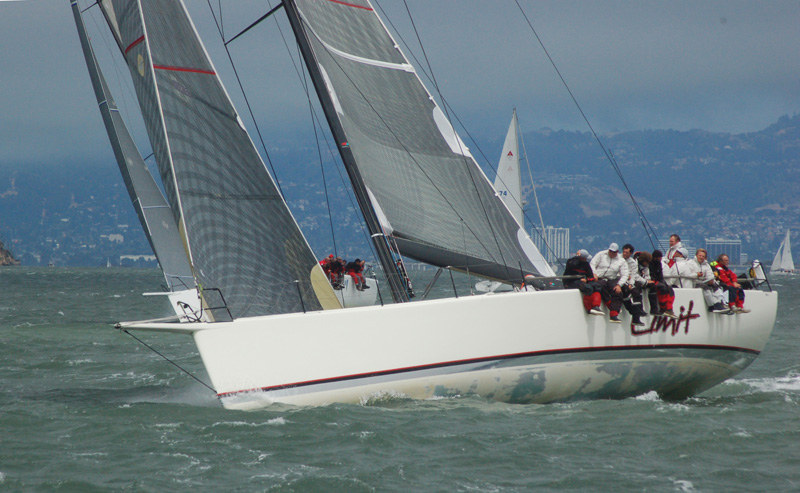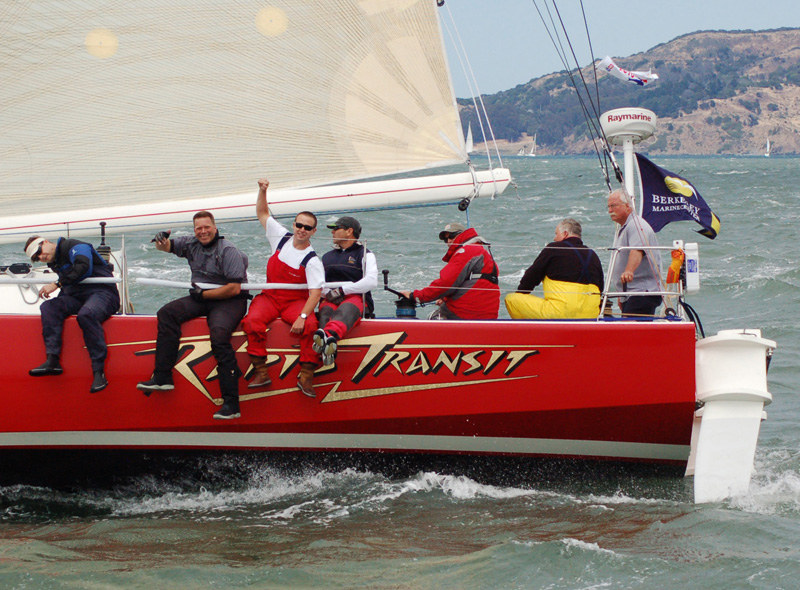
Pacific Cup Big Boats Away
©2010 Latitude 38 Media, LLC
The seventh and final division in the ’10 Pacific Cup got underway on Saturday afternoon. Division E, which features a wide range in boat size from Chip Megeath’s Tiburon-based R/P 45 Criminal Mischief to Hector Velarde’s Miraflores, Peru-based SC 70 Mirage, got going with breeze in the mid-teens, only to be greeted by some of the slowest first-day’s runs among all the start days so far. One of the co-scratch boats, Alan Briety’s R/P 63 Limit set the bar, traveling 82 miles down the course, with Criminal Mischief just two miles behind and holding the division lead.

© Latitude 38 Media, LLC
Thursday’s starters in Division D had all the luck with the weather, and as of yesterday’s sked (today’s had yet to be published as of this writing) still held the top eight spots overall. Jack Taylor’s Dana Point-based SC 50 Horizon vaulted past John McPhail’s J/160 JAM in the reachy, breezy conditions seen by the bulk of the fleet since Friday’s sked. Although we can’t know for sure, it would appear that Buzz Blackett’s brand-new Antrim Class 40 California Condor has been reveling in those conditions, putting up a 281-mile day.

© Latitude 38 Media, LLC
A battle for the Doublehanded 2 lead is raging between Jody and Skip McCormack’s Tiburon-based Farr 30 Trunk Monkey and Emma Creighton’s Pt. Richmond-based Mini Transat Pocket Rocket. Creighton and co-skipper Andy Hamilton are realizing the powerful Pocket Rocket‘s potential in the reachy conditions and have made a big move on the 21-ft boat, putting up a 245-mile day! A look at the race’s tracker shows that the duo haven’t let up, and although it looks like about 45-miles separates the two boats north to south, that gap is gradually closing.
© Latitude 38 Media, LLC
Among the other divisions, there hasn’t been much movement on the leaderboards, but that may well change as the breeze comes aft with the first boats crossing the halfway mark. There have been four retirements so far; in Doublehanded 1, Paul Disario and Tony Porche aboard Disario’s Pt. Richmond-based Olson 911 Plus Sixteen, and Leland Flint and Timothy Heekin aboard Flint’s Tiburon-based Beneteau 34 Sea Reine have dropped out due to scheduling and provisioning shortfalls brought on by the race’s slow start. In Division B, Dennis Ronk’s Vallejo-based Beneteau 411 Bequia has retired due to a broken steering sheave, and Gary Troxel’s Pt. Richmond-based Beneteau 423 Tiki Blue has also retired due to electrical issues. The transponders aboard Sean Mulvihill’s J/120 Jamani and Wayne Lamprey’s Quest 33 Rhum Boogie are not working, but they’ve been making the call-ins and their info will go up in the daily skeds. Other than that, it would appear as though everyone is in pretty good shape out there, as the ETA’s keep shrinking in inverse proportion to the daily runs. Make sure to follow the race at the links above. As a final footnote, we have to compliment the Race Committee for doing an excellent job with their site this year.
